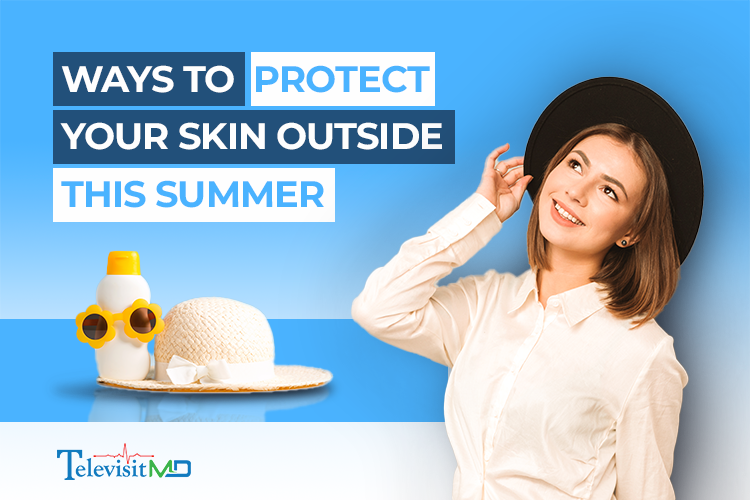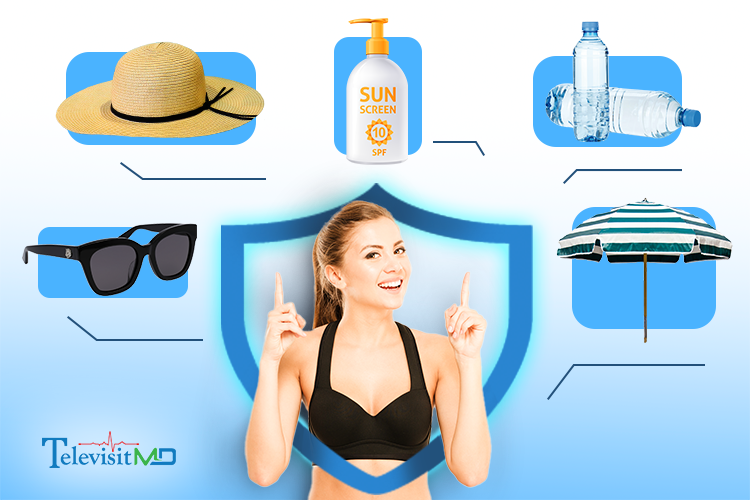Never Leave the House Unprotected

You don’t have to wait for summer to protect your skin from the sun, especially your beautiful and delicate face, from the damaging heat of the sun. Everyday can feel like a summer day even without those tiny bikinis and skimpy neon shorts. If there is sunshine, and warm temperature is felt whenever you leave the comforts of your house, not necessarily heat stroke material, it is imperative that you take time to find ways to protect your face from the powerful ultraviolet rays emanating from that wicked huge ball of hydrogen and helium.
And sometimes, we simply can’t be stopped from yearning to be with mother nature despite the tremendous heat. We can be very persistent and stubborn. We try to take the opportunity to escape from the city and enjoy the soothing and calming sand and water on a beach amidst our stressful work and hectic routine. We want adventure and seek for thrill in the outdoors with all the elements circulating around. And often, we tend to forget to apply the perfect sunblock on our glassy skin. Sadly, we choose to ignore the need to put extra skin protection against the harmful UV rays of the sun.
Waste of time.
Waste of money.
We are invincible and unbreakable anyways.
We always find reasons to defend and explain our embarrassing ignorance and irresponsibility.
Yes, the sun can harm you.
True, the sun can hurt you.
Matter of fact, the sun can kill you.
And yet, we continue to choose to be ignorant and irresponsible. Shame on you.
We have been taught from the very beginning that if you spend too much time under the sun, your healthy skin can be damaged. Your skin will suffer. Your skin will be bad. And you’ll get better chances of developing skin cancer.
Yes, the dreaded Big C. And you do not want that.
How Does Ultraviolet Light Affect Your Skin Cells
#1: Though the sun remains as one of the best sources of Vitamin D for the human body, and it only takes 10-15 minutes of sunlight exposure to help boost your Vitamin D, which is needed by your body to absorb calcium, you should never forget that the sun’s UV rays can actually and easily damage your unprotected skin in as little 15 minutes. BE CAREFUL NOT TO OVERDO IT.
#2: According to the Centers of Disease Control and Prevention (CDC), UV rays are an invisible kind of radiation that comes from the sun, tanning beds, and sunlamps. Protection from UV rays is important all year, not just during the summer. UV rays can reach you on cloudy and cool days, and they reflect off surfaces like water, cement, sand, and snow. BE CAREFUL NOT ONLY DURING SUMMER.
#3: You can keep your skin healthy and protect it from the dangerous and destructive UV rays during summer days and beyond. Again, if the sun shines bright like a diamond, even during other seasons, you should never take the risk. BE CAREFUL, BE EXTRA CAREFUL
Here are some amazing Sun Safety Tips:

1. Staying in the shade
You can reduce your risk of sun damage and skin cancer by staying in the shade under an umbrella, tree, or other shelter. Your best bet to protect your skin is to use sunscreen or wear protective clothing when you’re outside—even when you’re in the shade.
2. UV Rays Protective Clothing
When possible, wear long-sleeved shirts and long pants and skirts, which can provide protection from UV rays. If wearing this type of clothing isn’t practical, try to wear a T-shirt or a beach cover-up. Clothes made from tightly woven fabric offer the best protection. A wet T-shirt offers much less UV protection than a dry one, and darker colors may offer more protection than lighter colors. Some clothing is certified under international standards as offering UV protection.
3. Wear a Sun Hat
For the most protection, wear a sun hat that has a brim all the way around that shades your face, ears, and the back of your neck. A tightly woven fabric, such as canvas, works best to protect your skin from UV rays. Avoid straw hats with holes that let sunlight through. A darker hat may offer more UV protection.
If you wear a baseball cap, you should also protect your ears and the back of your neck by wearing clothing that covers those areas, using sunscreen, or staying in the shade.
4. Use Sun Protection Sunglasses
Sunglasses protect your eyes from UV rays and reduce the risk of cataracts. They also protect the tender skin around your eyes from sun exposure.
Safety sun glasses that block both UVA and UVB rays offer the best protection. Most sunglasses sold in the United States, regardless of cost, meet this standard. Wrap-around sunglasses work best because they block UV rays from sneaking in from the side.
5. Sunscreen
Put-on broad-spectrum sunscreen that blocks both UVA and UVB rays and has an SPF of 15 or higher before you go outside. Don’t forget to put a thick layer on all exposed skin. Get help for hard-to-reach places like your back. And remember, sunscreen works best when combined with other options.
Sunscreen is not recommended for babies who are 6 months old or younger. The U.S. Food and Drug Administration recommends keeping infants out of the sun during midday and using protective clothing if they have to be in the sun.
Keep in mind:
SPF: Sunscreens are assigned a Sun Protection Factor (SPF), which is a number that rates how well they block UV rays. Higher numbers indicate more protection. You should use a broad-spectrum sunscreen with an SPF of 15 or higher.
Reapplication Sunscreen: Sunscreen wears off. Put it on again if you stay out in the sun for more than 2 hours and after swimming, sweating, or toweling off.
Sunscreen Expiration date: Check the sunscreen’s expiration date. Sunscreen without an expiration date has a shelf life of no more than 3 years. Its shelf life is shorter if it has been exposed to high temperatures.
To find out more about how you can effectively protect your skin and skin care tips that keep it healthy not just during summer days but all year long, call TelevisitMD now!
REFERENCE: https://www.cdc.gov/cancer/skin/basic_info/sun-safety.htm